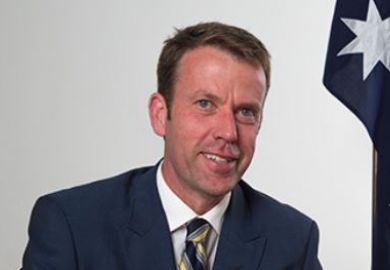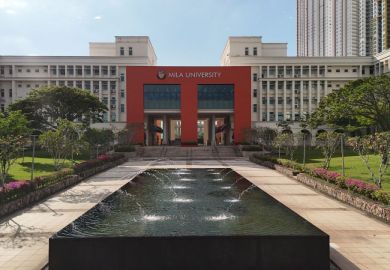Australia has its first new university in seven years and three new university colleges, as revamped provider category standards usher change in the country’s normally static higher education sector.
Avondale University College, a 124-year-old Seventh-day Adventist institution based north of Sydney, has been awarded full university status less than two years after its elevation as a university college.
Three Sydney institutions – the Australian Film Television and Radio School (AFTRS), Moore Theological College and the National Institute of Dramatic Art (NIDA) – have been granted university college status, a category that had lain vacant for eight years before Avondale became the first incumbent in 2019.
The developments accompanied Australia’s transition to the new standards on 1 July. Education minister Alan Tudge said the reforms would boost diversity, especially in regional areas and specialised fields.
“We’ve…rationalised the number of higher education provider categories from six to four and put in place stronger research requirements for Australian universities to make sure their research meets world standards,” Mr Tudge said.
The Tertiary Education Quality and Standards Agency (Teqsa) said it had undertaken a “comprehensive and thorough” assessment of the four institutions. Chief commissioner Peter Coaldrake, who prescribed the new standards in a 2019 review, said they had been “fairly and consistently applied”.
It was a case of third time lucky for Avondale, which unsuccessfully applied for university status at the turn of the century. It tried again a decade later and was told to increase its research output.
Professor Coaldrake said Avondale’s success this time recognised its “significant research progress” as well as its commitment to student outcomes and its communities. Vice-chancellor Kevin Petrie expressed gratitude “for the opportunity to bring further diversity to the sector”.
He said Avondale’s “world standard” interdisciplinary research in health, education and spirituality informed civic engagement and leadership in areas such as lifestyle medicine interventions and the understanding of Australian history.
Avondale will have to maintain its focus on research to retain its newly won status. The standards require universities to conduct research at world standard or better in at least half the broad fields of education in which they teach.
That benchmark must be achieved within 10 years. In the meantime, Avondale must conduct world-standard research in at least 30 per cent of its educational fields.
But the newly badged university can expect more resources for its research effort. Australian National University policy expert Andrew Norton said that Teqsa registration of a provider as a university did not confer any right to government research funding. But “in practice”, all universities had been given access to research funding schemes.
Professor Coaldrake also congratulated NIDA, AFTRS and Moore for attaining university college status. He said the category, which has been revamped since Avondale’s entry, offered new opportunities to develop future-oriented courses for institutions that demonstrated “high-quality higher education”.
Other aspirants appear not to have convinced Teqsa of their merit. Professor Coaldrake told a recent conference that the regulator was processing “quite a number” of applications for university college status.
Moore said it had expended a “great deal of effort” on its application. “Moore College is committed to serving our students with an excellent theological education which equips them well for Christian ministry,” said principal Mark Thompson. “Today’s announcement…is an encouragement to keep doing that and to do it even better.”
Register to continue
Why register?
- Registration is free and only takes a moment
- Once registered, you can read 3 articles a month
- Sign up for our newsletter
Subscribe
Or subscribe for unlimited access to:
- Unlimited access to news, views, insights & reviews
- Digital editions
- Digital access to THE’s university and college rankings analysis
Already registered or a current subscriber?










